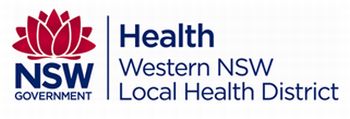RACP seeks better drug policy
 Physicians say Australia’s drug policies need a detox.
Physicians say Australia’s drug policies need a detox.
The Royal Australasian College of Physicians (RACP) has urged Australian governments to prioritise health in drug policy, calling for decriminalisation, harm reduction, and expanded treatment services.
A recent position statement, released ahead of the NSW Drug Summit, called for evidence-based reforms to address drug-related harm and inequity.
“Government needs to address drug use from all angles – there is no one silver bullet. A health-focused approach requires a comprehensive understanding of interconnecting issues,” said Professor Jennifer Martin, RACP President.
The RACP supports decriminalising drug use and possession for personal use, arguing criminalisation does not improve outcomes but instead perpetuates stigma and harm.
“Australians will see healthier and safer communities when drug policy is addressed using a health lens - not a criminal one,” Professor Martin added.
The statement also called for investment in harm reduction, such as drug-checking programs and supervised injecting centres, alongside treatment services. Addressing root causes, like childhood trauma, is also considered critical to prevent drug misuse.
The RACP highlighted the disproportionate impact of punitive drug policies on Aboriginal and Torres Strait Islander people, as well as Māori communities. It called for culturally appropriate, trauma-informed care led by these groups.
“Governments must be committed to meaningful engagement with priority populations,” said Professor Martin.
NSW’s diversion scheme for minor drug offences has faced scrutiny for its low participation rates.
Only 6.4 per cent of eligible offenders were diverted from court between February and August, with rates for Indigenous Australians as low as 2 per cent.
Professor Alison Ritter from the UNSW Drug Policy Modelling Hub described the disparities as “appalling” and criticised the scheme for prioritising those less likely to need intervention.
Former Ice Inquiry Commissioner Dan Howard called the low diversion rates a “failure of policy” and pushed for systemic reform.
Despite the RACP’s call for decriminalisation, NSW Health Minister Ryan Park ruled it out.
“The premier’s made some things clear around decriminalisation, that we probably wouldn’t be going down that path per se,” he said.
The state government plans to review its diversion scheme after 12 months and develop a broader drug strategy.








 Print
Print